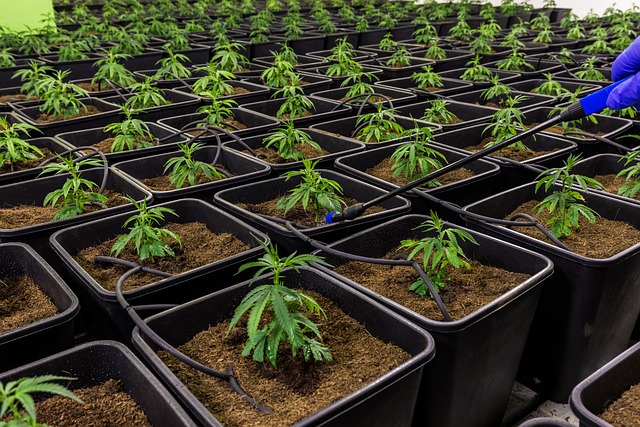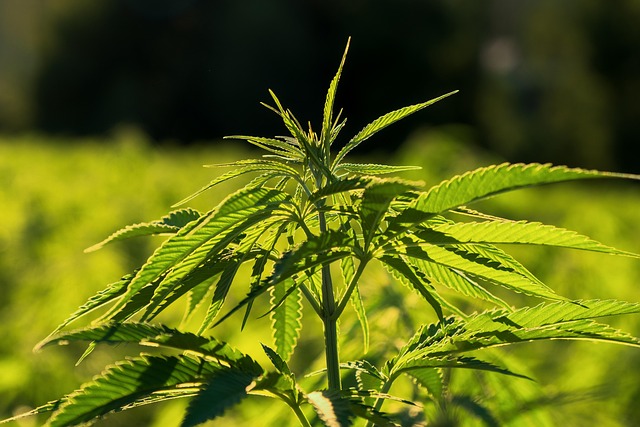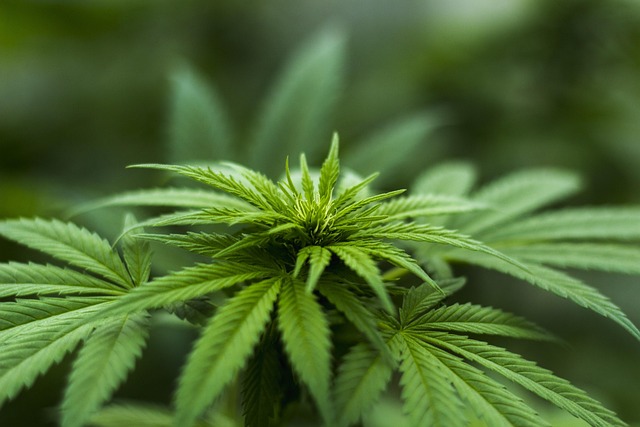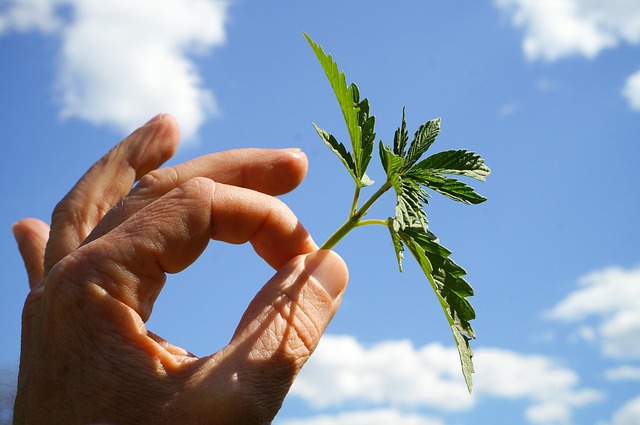Category: thca rosin vs thc rosin
THCA Rosin vs THC Rosin: Unraveling the Complexities of a Rising Industry
Introduction
In the ever-evolving landscape of cannabis products, two distinct forms have emerged, capturing the attention of consumers and industry experts alike: THCA rosin and THC rosin. These innovative extraction methods represent a significant shift in how we consume and perceive cannabis compounds, offering unique benefits and experiences. This article aims to delve into the intricacies of these processes, comparing and contrasting their properties, applications, and impact on the global market. By exploring “THCA Rosin vs THC Rosin,” readers will gain valuable insights into this burgeoning industry, its potential, and the considerations that shape its future.
Understanding THCA Rosin vs THC Rosin: A Deep Dive
Definition and Core Components
THCA (Terpenoid 4-Hydroxycannabinol) rosin and THC (Tetrahydrocannabinol) rosin are both concentrated forms of cannabis extracts, but they differ in their primary active compounds. THCA rosin focuses on the extraction of THCA, a non-intoxicating cannabinoid known for its potential therapeutic benefits, while THC rosin targets the more well-known and psychoactive compound, THC.
Both methods involve the use of specialized equipment and techniques to isolate these compounds from the cannabis plant. The process typically includes curing, harvesting, and subsequent extraction using solvents or supercritic CO2. The result is a viscous substance, often resembling tree sap (hence the term “rosin”), packed with powerful cannabinoids.
Historical Context and Significance
The concept of rosin extraction has its roots in traditional methods used by cannabis cultivators to preserve and concentrate the plant’s compounds. However, modern advancements have led to the development of sophisticated techniques that allow for precise control over the extraction process. This evolution has resulted in a surge of interest from both medical professionals and recreational users seeking alternative consumption methods.
THCA rosin stands out for its potential therapeutic applications, as THCA is believed to offer anti-inflammatory, analgesic, and anxiolytic properties without the psychoactive effects associated with THC. On the other hand, THC rosin has been a staple in the cannabis industry for its intoxicating effects, contributing to the recreational use of cannabis products.
Global Impact and Trends
International Influence
The global cannabis market, driven by changing attitudes towards marijuana, is experiencing rapid growth. THCA rosin and THC rosin are at the forefront of this movement, with each region adopting and adapting these extraction methods in unique ways.
- North America: Leading markets like California and Colorado have been early adopters, with a focus on high-quality, pure extracts. The West Coast, known for its cannabis innovation, has seen a surge in THCA rosin products, catering to health-conscious consumers.
- Europe: With a more regulated market, Europe presents a diverse landscape. Countries like Germany and the UK have embraced THC rosin as part of their recreational offerings, while others are exploring THCA rosin for medical purposes.
- Asia: The Asian cannabis market is emerging, with countries like Israel and Japan leading the way in research and development. THCA rosin is gaining traction for its potential non-psychoactive benefits, while THC rosin remains popular among recreational users.
Key Trends Shaping the Trajectory
- Consumer Demand for Pure, Natural Products: There is a growing preference for cannabis products that are free from additives and synthetic chemicals. THCA rosin, with its concentrated natural compounds, aligns well with this trend.
- Medical Use and Research: The medical community’s increasing interest in cannabinoids has driven demand for highly potent and pure forms like THCA rosin. Research into the therapeutic potential of specific cannabinoids is fueling product development.
- Recreational Use and Diversification: As cannabis legalizes globally, recreational users seek diverse consumption methods. THC rosin, with its distinct high, caters to this segment, while THCA rosin offers an alternative for those seeking non-intoxicating relief.
Economic Considerations
Market Dynamics and Growth
The global cannabis market, valued at approximately $20 billion in 2021, is projected to reach over $70 billion by 2028, showcasing a compound annual growth rate (CAGR) of around 24%. Within this vast industry, THCA rosin and THC rosin extracts are niche but rapidly expanding sectors.
- THCA Rosin Market: This segment is expected to witness significant growth due to its therapeutic applications. According to a report by Grand View Research, the global THCA market size was valued at $258 million in 2020 and is anticipated to expand at a CAGR of 27.4% from 2021 to 2028.
- THC Rosin Market: The recreational market for THC rosin is mature, with a significant player base. However, the focus on alternative consumption methods and diverse product offerings presents opportunities for growth.
Investment Patterns and Opportunities
The cannabis industry has attracted substantial investment, with many venture capital firms and private equity investors targeting promising startups and established companies. THCA rosin and THC rosin businesses have garnered interest from investors seeking to capitalize on the following:
- High Margin Products: These extracts offer higher profit margins compared to traditional flower or edibles, making them attractive to investors.
- Niche Market Potential: The growing demand for specialized, high-quality products presents a significant opportunity for differentiation and market capture.
- Regulatory Clarity: As more regions legalize cannabis, investment in these sectors becomes increasingly viable due to improved regulatory frameworks.
Technological Advancements
Innovations in Extraction Techniques
The field of cannabis extraction has witnessed remarkable technological advancements, primarily driven by the need for safer, more efficient, and environmentally friendly methods:
- Supercritical CO2 Extraction: This state-of-the-art technique uses pressurized carbon dioxide to extract cannabinoids, resulting in a pure product with minimal residual solvents. It is widely used for both THCA and THC rosin production.
- Solvent-Free Methods: Recent innovations focus on solvent-free extraction, offering improved safety and environmental benefits. These methods are particularly attractive for producing high-purity THCA rosin.
- Automated Extraction Systems: The industry is seeing the adoption of automated systems that streamline the extraction process, increasing consistency and reducing labor costs.
Product Development and Formulations
Beyond extraction, technological advancements have led to a diverse range of THCA and THC rosin products:
- Concentrates and Oils: These highly potent forms are popular for their convenience and rapid onset of effects. They can be consumed orally or used in various applications, from aromatherapy to skincare.
- Vaporizers and E-Liquids: THCA and THC rosin are ideal for vaporization, providing a smooth and customizable experience. E-liquids derived from these extracts cater to the growing vaping market.
- Edibles and Capsules: The culinary applications of these extracts have led to innovative edibles and capsules, offering precise dosing and a wide range of flavors.
- Topical Products: Creams, salves, and balms infused with THCA or THC rosin are gaining popularity for their analgesic and anti-inflammatory properties in skincare and wellness routines.
Policy and Regulation
Global Regulatory Landscape
The legal status of cannabis varies widely across the globe, impacting the development and availability of THCA rosin and THC rosin products:
- Legalized Markets: In countries like Canada, Germany, and Uruguay, cannabis is fully legalized, allowing for robust domestic production and a wide range of cannabis-derived products.
- Medical-Only Access: Some regions, such as the United States (at the federal level) and many Asian countries, permit medical marijuana but restrict recreational use. This scenario presents opportunities for THCA rosin in the medical sector while limiting THC rosin availability.
- Strict Regulations: Countries with stringent regulations, like Japan and some Middle Eastern nations, have limited cannabis access, hindering the development of these extracts on a large scale.
Legislative Frameworks and Their Influence
The regulatory frameworks surrounding cannabis directly impact the production, distribution, and consumption of THCA rosin and THC rosin:
- Licensing and Permits: Businesses involved in the extraction and sale of these compounds must obtain licenses and permits, ensuring compliance with local laws.
- Quality Control and Safety Standards: Regulators establish guidelines for testing and labeling to ensure product safety and consistency. This includes potency, pesticide residue, and solvent levels.
- Taxation and Pricing: Cannabis-derived products are often subject to high taxation, affecting their pricing and market accessibility.
- Research and Development Incentives: Some governments offer incentives to encourage research into cannabinoids, which can drive innovation in THCA rosin and THC rosin development.
Challenges and Criticisms
Overcoming Production Challenges
One of the primary challenges in the THCA rosin and THC rosin industry is maintaining consistent product quality. The delicate nature of cannabinoids requires precise extraction techniques to avoid degradation, ensuring consumers receive products with the intended effects and benefits.
- Standardization: Establishing standardized extraction methods and quality control measures is essential to ensure consistency across different producers.
- Purity and Safety: Ensuring the absence of residual solvents and contaminants is critical for consumer safety, particularly in edible and topical products.
Addressing Criticisms and Misconceptions
The cannabis industry, including THCA rosin and THC rosin, faces various criticisms and misconceptions:
- Stigma and Public Perception: Despite growing acceptance, cannabis still carries a stigma in many societies, impacting public perception of these extracts. Education and awareness campaigns are crucial to dispelling myths and promoting responsible use.
- Intoxication Concerns: Critics argue that THC rosin, with its psychoactive properties, may lead to abuse and addiction. However, moderate use and product regulation can mitigate these risks, as seen in many legal markets.
- Price and Accessibility: High production costs and strict regulations can make these products less accessible and more expensive, limiting their availability to a select few. Policies that encourage competition and lower barriers to entry could address this issue.
Case Studies: Real-World Applications
Case Study 1: Medical Cannabis Clinic in Israel
In Israel, where medical cannabis is fully legalized, a leading clinic has implemented THCA rosin as a primary treatment option. The clinic’s success lies in its tailored approach, offering patients with various conditions (e.g., chronic pain, anxiety) personalized THCA rosin formulations. This case highlights the potential of THCA rosin in addressing specific medical needs, emphasizing the importance of specialized treatments.
Case Study 2: Recreational Market in Colorado
Colorado’s robust recreational market has seen a surge in THC rosin products, catering to a diverse customer base. Local cultivators and extractors have embraced innovative techniques, producing high-quality THC rosin concentrates and edibles. This case study illustrates the market potential and consumer demand for THC rosin, driving industry growth and diversification.
Case Study 3: Skincare Brand in Europe
A European skincare company has developed a line of THCA rosin-infused topicals, capitalizing on its anti-inflammatory properties. The brand’s success lies in its scientific approach, combining advanced extraction methods with dermatologically tested formulations. This case demonstrates the versatility and therapeutic applications of THCA rosin beyond traditional cannabis consumption methods.
Future Prospects: Trends and Strategic Considerations
Emerging Markets and Growth Areas
The future of THCA rosin and THC rosin looks promising, with several growth areas and emerging trends shaping the industry:
- Global Expansion: As more countries legalize cannabis, global markets will open up, creating opportunities for international expansion.
- Hemp-Derived Cannabinoids: The increasing focus on hemp-derived products offers a sustainable and legal alternative for THCA rosin production, with potential tax advantages.
- Personalized Medicine: The medical community’s trend towards personalized treatments aligns well with the precision extraction capabilities of these compounds, allowing for tailored dosing and formulations.
Technological Advancements to Watch
Technology will continue to play a pivotal role in shaping the industry:
- Nanotechnology: Innovations in nanotechnology could lead to more efficient extraction processes and improved product delivery systems, enhancing the overall experience.
- Biomass Conversion: Advances in biomass conversion technologies may open up new avenues for extracting cannabinoids from alternative plant sources.
- Digital Health Solutions: The integration of digital health platforms can facilitate personalized cannabis therapy, allowing patients to track their responses to different THCA or THC rosin formulations.
Regulatory and Policy Considerations
As the industry matures, several regulatory and policy considerations will be crucial:
- Harmonization of Standards: Developing globally accepted standards for testing and labeling will ensure product consistency and consumer protection across borders.
- Research Collaboration: Encouraging collaboration between researchers, cultivators, and extractors can drive innovation and expand our understanding of cannabinoids.
- Consumer Education: Continued education efforts are necessary to address misconceptions, promote responsible use, and ensure consumer safety.
Conclusion: Navigating the Rising Wave
The journey of THCA rosin vs THC rosin is a testament to human ingenuity and our relentless pursuit of improved cannabis consumption methods. From its humble beginnings as a traditional extraction method to its emergence as a leading industry segment, these compounds have captivated consumers and professionals alike. As we navigate the rising wave of cannabis legalization and acceptance, THCA rosin and THC rosin are poised to play pivotal roles in shaping the future of the cannabis market.
FAQ Section
Q: Is THCA rosin safer than THC rosin?
A: Both compounds have their unique safety considerations. THCA is generally believed to be non-intoxifying, making it a preferred choice for those seeking non-psychoactive relief. However, excessive consumption of any cannabinoid may lead to adverse effects. THC rosin, while potentially more potent, can produce psychoactive effects, which some users may find undesirable.
Q: Can THCA rosin be used for medical purposes?
A: Absolutely. THCA rosin has gained traction in the medical cannabis community for its potential therapeutic benefits. Studies suggest it may aid in managing pain, anxiety, and inflammation. However, as with any medication, it should be used under professional guidance.
Q: How do I choose between THCA rosin and THC rosin?
A: The choice depends on your preferences and intended use. If you seek a non-intoxifying experience or have specific medical needs, THCA rosin might be the better option. For recreational users looking for a wide range of products and potential mental effects, THC rosin is a popular choice.
Q: Are there any side effects associated with these extracts?
A: Like any substance, excessive consumption or misuse may lead to side effects. These can include dry mouth, red eyes, cognitive impairment, and in rare cases, more severe reactions. It’s essential to consume these products responsibly and follow recommended dosages.
Q: Can I grow my own THCA or THC rosin?
A: While you can cultivate cannabis plants, extracting rosin requires specialized equipment and knowledge. It is generally recommended to purchase from licensed producers to ensure product quality and safety.
Experience Pure Potency: ThCA Rosin vs THC – Save Now with Free Shipping!

Tired of the inconsistencies and potential impurities found in traditional THC rosin? Upgrade to THC…….
Save Money & Clarity: Hemp Fiber Outperforms THC Rosin

Tired of the high cost and inconsistency of THC rosin? Switch to hemp fiber and experience a game-ch…….
THCA Rosin vs THC Rosin: Save & Ship Free – Find Your Best Value!

Tired of paying a premium for high-potency cannabis products? The choice between THCA rosin and THC…….
Experience Pure Potency: THCA Crystal Isolate Beats THC Rosin Prices!

Tired of the inconsistencies and high costs associated with THC Rosin? Upgrade to THCA Crystal Isola…….
ThCA Rosin vs THC: Save Money & Choose the Safer Blend

Maximize your hemp oil investment with THCA rosin, a cost-effective alternative to traditional THC r…….
Experience Pure Potency: Delta 9 Edibles Outperform THCA Rosin – Save & Ship Free!

Tired of overpaying for less potent Delta 9 edibles? Discover the superior alternative with our excl…….
Experience the Difference: Save with Premium Delta 8 Wax vs. THC Rosin

Tired of the intense paranoia and anxiety associated with traditional THC rosin? Delta 8 wax is here…….
Experience Pure Joy, Save Money: Delta 9 Vape Outperforms Rosin

Tired of the mess and inconsistency plaguing THCA rosin? Upgrade to our Delta 9 THC Vape, a revoluti…….
Unwind Naturally: Thca Rosin vs THC – Find Your Calm Blend Today!

Tired of the debate between THCA Rosin and THC Rosin? Our premium Hemp Blends offer a clear advantag…….
